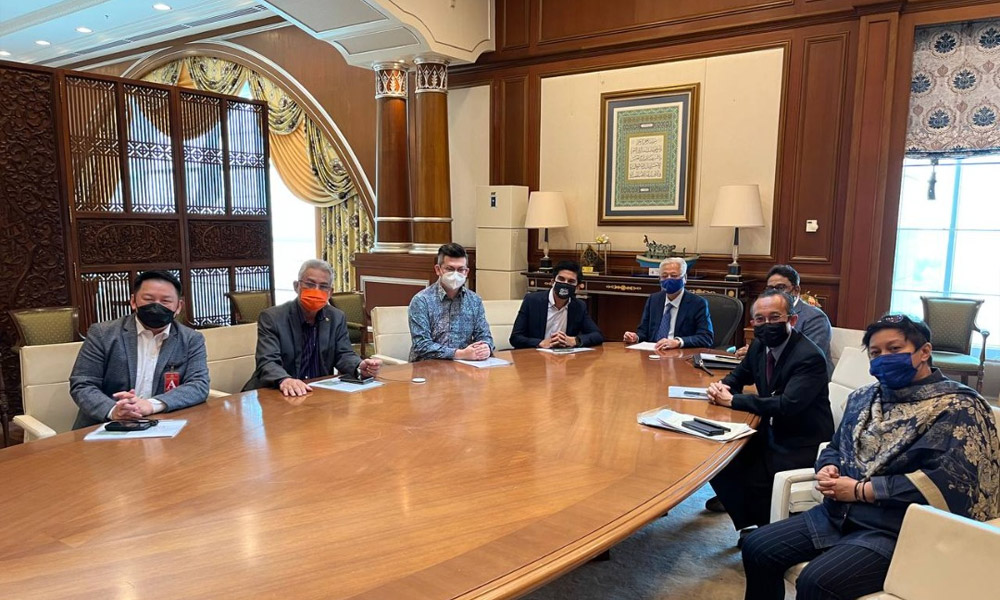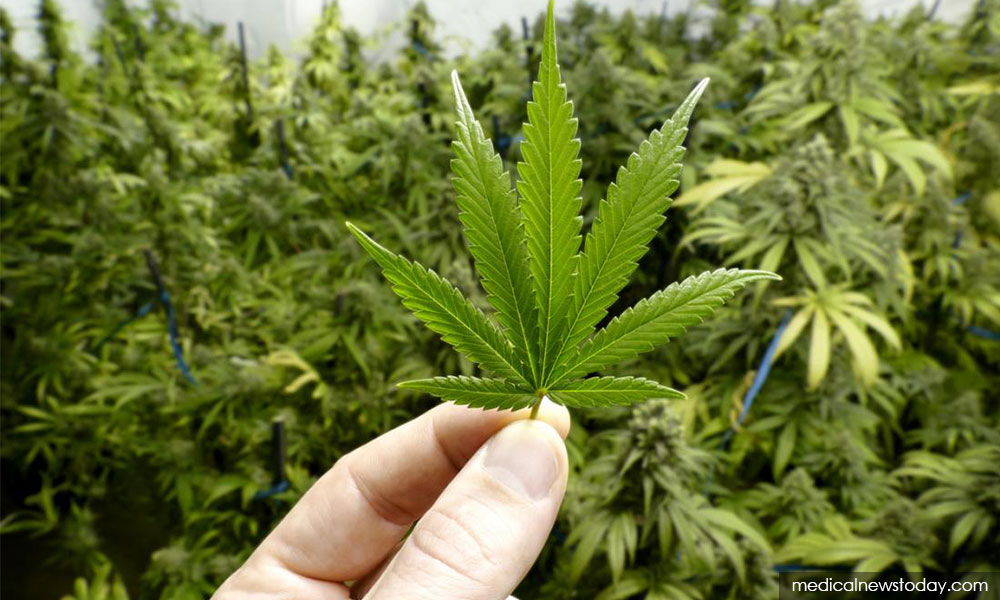The National Fatwa Council should discuss and provide guidance on the issue of medical marijuana or cannabis, Pahang executive council member for plantations and commodities Mohd Sharkar Shamsudin said.
“As Islam is the religion of the federation, the National Fatwa Council should meet to seriously consider the fact that even though there are negative aspects to it, there is also a positive medical benefit,” he said when contacted yesterday.
He said to date, only Penang mufti Wan Salim Mohd Noor has come forward to say the use of natural products like marijuana for medical purposes is permissible as long as it is not harmful to health.
“If we can find justification for the use for medical purposes, and if it is permissible in Islam, I don’t see why we cannot (use medical marijuana),” Sharkar said.
Sharkar, who is also the tourism, culture and environment exco member, was commenting on the meeting of the Medical Cannabis and Ketum Parliamentary Caucus with Prime Minister Ismail Sabri Yaakob on April 12.
According to the bipartisan caucus, Ismail Sabri had provided positive feedback to its suggestions in the meeting at the Prime Minister's Office and said the matter will be discussed in a cabinet meeting.
The caucus is made up of Syed Saddiq Syed Abdul Rahman (Muda-Muar), Azalina Othman Said (BN-Pengerang), Khalid Abd Samad (Pakatan Harapan-Shah Alam), Dr Xavier Jayakumar (Independent-Kuala Langat), Ignatius Darell Leiking (Warisan-Penampang), Kelvin Yii (Harapan-Bandar Kuching) and Dr Azman Ismail (Harapan-Kuala Kedah).

Need to desensitise public
Meanwhile, Sharkar said a fatwa could help educate society about the medical benefits of marijuana because the concept can be shocking to many.
“You have to understand. To date, people can be sentenced to death for marijuana. And then suddenly you want to make it permissible,” he said.
He said society must first be educated on what is medical marijuana and how it is being used in countries where it has been legalised.
“Society has to be educated on how it is time to move forward and to find new alternatives in the world of medicine through clinical trials on the usage of herbs and so on.
“This has been proven beneficial in countries which use it. There have been positive impacts, more positive outcomes in the medical field than there are negatives,” he said.
“The government needs to look at the bigger picture, that is to see marijuana not as a hallucinogen but as a remedy for certain ailments.
“The medical world is very progressive, meaning it looks at new alternatives to cure illnesses,” he said.

Control it like a pharmaceutical drug
According to Sharkar, abuse of marijuana can be controlled in the same way as pharmaceuticals.
“We have to control it to ensure there is no abuse. You can make alcoholic drinks from barley, you can even make alcoholic drinks from rice. They intoxicate. So we control (the consumption of alcoholic drinks),” he said.
Besides the bipartisan caucus, there is also a similar alternative move by Padang Besar MP Zahidi Zainul Abidin, along with the National Poisons Centre, various NGOs and private companies.
The Commission on Narcotic Drugs of the United Nations has reclassified marijuana as a “less dangerous drug” and has removed it from its list of drugs that can kill and cause addiction.
In its 63rd sitting in Austria on Dec 2, 2020, the council accepted the motion to drop cannabis and cannabis resin from Schedule IV of the 1961 Convention.
In the latest developments, the Thai Narcotics Council on Jan 25 removed marijuana from its list of narcotics, paving the way for the public to cultivate the plant for their own use.
In 2018, Thailand is the first Southeast Asian country to legalise marijuana for medical and research purposes.
Medical and law experts supported the legalisation of medical marijuana, which they said has been proven to have therapeutic qualities. However, empirical data to support such claims have been less unequivocal.
Last year, a review by the British Medical Journal made a “weak” recommendation in favour of offering non-inhaled marijuana and its derivatives on a trial basis to patients with chronic pain, if standard medical care is not sufficient in managing the pain. - Mkini




No comments:
Post a Comment
Note: Only a member of this blog may post a comment.